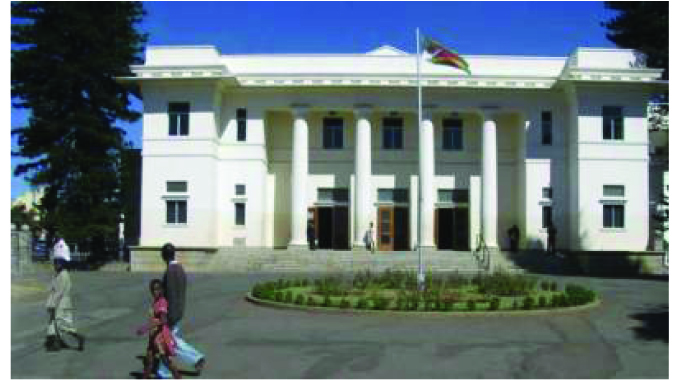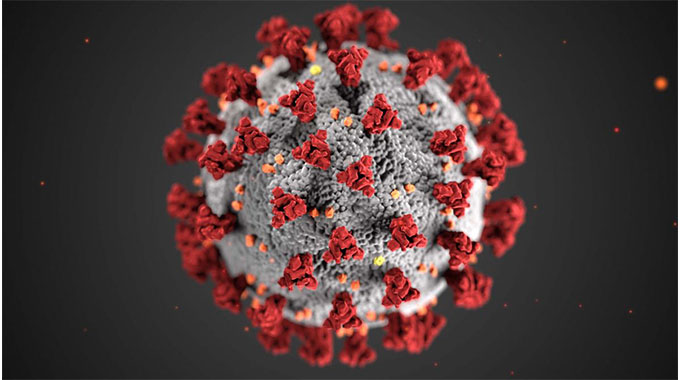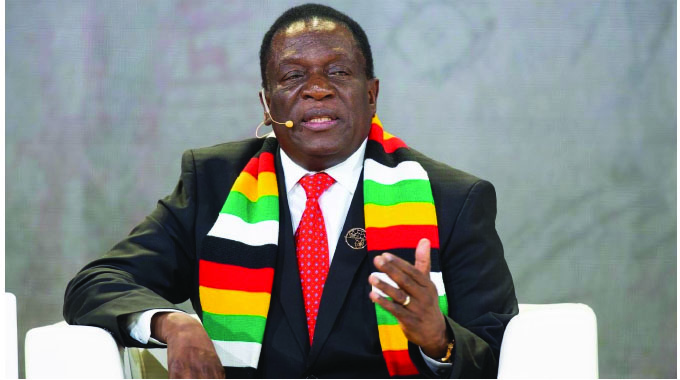Young farmer sets up YouTube page to teach eco-friendly permaculture

Bongani Ndlovu, Chronicle Reporter
In 2019, Mr Guest Sonono (24) was in China studying Hotel Management on a sports scholarship and now is in Zimbabwe driving his passion for climate-friendly agriculture in the form of permaculture.
This 180-degree change in his career path from a budding athlete was influenced by the Covid-19 pandemic.
Covid-19 broke out at the end of 2019 and ravaged the world, killing millions and disrupting life as people knew it, including studies.
Mr Sonono had just left Petra High School in Bulawayo as a prospective athlete specialising in the 100 and 200m sprints and made the grade to further his career in China.
But in 2022, he finds himself in Zimbabwe, as part of the first batch of 87 youths that graduated last Thursday from two hubs specialising in green agriculture, one at Jairos Jiri Centre in Nguboyenja suburb and the other in Mabutweni in Bulawayo.
The ceremony that was held at Jairos Jiri Centre was attended by the Permanent Secretary in the Ministry of Youth, Sport, Arts and Recreation, Dr Thokozile Chitepo.
The youth hubs were launched by Netherlands Development Organisation (SNV) in partnership with Jairos Jiri, Bulawayo City Council (BCC) and other development agencies.
Three years ago, Mr Sonono said addressing the other youths on Thursday, he thought his passion was sports and athletics, but Covid-19 disruptions unlocked his unknown love for agriculture and permaculture.

Dr Thokozile Chitepo
Permaculture can be understood as the growth of agricultural ecosystems in a self-sufficient and sustainable way. The system generates almost everything needed for successful farming with minimal disruption to the environment. This form of agriculture draws inspiration from nature to develop synergetic farming systems based on crop diversity, resilience, natural productivity, and sustainability. chronicle visited Newton West suburb in Bulawayo where Mr Sonono’s vision is unfolding at his family’s 1.3-acre land.
He has embarked on various projects that include rearing road-runner chickens.
Mr Sonono has connected the roof-gutter system around his house to a 2 000 litre water tank to harvest rainwater. There is a deep hole where he says he intends to set up a 40 000-litre tank to store harvested water.
At the back of the yard, there is a pond for a fishery project.
He has set up two water tanks; one 1000 litre and the other 2000 litre, to mitigate water challenges.
Once completed, the fishery will provide water for the irrigation of crops and the vegetable garden and then the chicken manure will feed the fish.

Bulawayo City Council (BCC)
In another part of the plot, he intends to grow sunflowers, beans, sorghum and maize. These will be used to make stock feed for his chickens.
Mr Sonono said solutions to climate change and sustainable ecosystems were “embarrassingly simple.”
“We all need to plant food forests in our back yards and we are going to curb all these challenges that we face such as climate change. The solutions are in our hands and that is why I want to empower the youths with the knowledge that I have,” said Mr Sonono. He said permaculture is simply mimicking natural systems.
“It’s advanced agriculture. Let’s say you are given land, instead of planting tomatoes or one type of crop, this is an opportunity to integrate and have diversity. You can even integrate animals into your system,” said Mr Sonono.
“Through permaculture, we aren’t using chemicals because pesticides and fertilisers go into the soil and kill microbes. So, permaculture benefits you and regenerates the environment. The human being is the element that connects the pieces.
“Take, for instance, you have a piece of land that has fish, chickens and vegetables, the chicken manure will be used as fish food, and the water from the fishery can be used for irrigating the vegetables because it’s rich in nutrients,” said Mr Sonono.
He said while permaculture is input-intensive, it will be smooth sailing when all has been set up.

Mr Guest Sonono tends to his chickens. This provides manure which is used in permaculture instead of fertiliser.
“Most of the money is spent at the beginning when setting up. But when that’s done correctly, save a few things, everything that is needed to run the system comes from within it,” said Mr Sonono.
He said he was set back by water challenges and plans to drill a borehole. Mr Sonono has set up a YouTube page to teach the youth about permaculture.
He said when his studies were disrupted by Covid-19 in 2019, he returned to Zimbabwe and started rearing chickens to make ends meet.
“When I returned, I had some money and started keeping chickens and then discovered that I’m good at this.
I was doing good with the chickens so much that the supplier that I was buying the chickens from, Hamara, came to my home for a visit,” said Mr Sonono.
“The people from Hamara saw that my land is big and they said to me, ‘why don’t you just do farming?’
That’s when I spoke to my aunt telling her of my interest in farming, and she said I can do farming as long as I’m doing permaculture.”
Mr Sonono said his Australia-based aunt introduced permaculture to him having studied it since 2018.
“I then researched online and found Fambidzanai Permaculture Centre in Harare in October 2020. I enrolled for a two-week intensive course,” he said.
Mr Sonono said his aunt paid for his online course at Permaculture Research Institute based in Australia and he graduated in December 2021.

He said from January 2022, he has been working as a permaculture designer and doing a permaculture internship with the institute in Australia.
Mr Sonono said when researching online in 2020, he came across an advert circulating on WhatsApp offering an opportunity by SNV and Empretec in agriculture.
SNV is implementing the Opportunities for Youth Employment (OYE) programme funded to the tune of US$5 million in 11 districts in Zimbabwe.
The organisation started the programme in 2019.
It seeks to improve the livelihood and prospects of 10 000 out-of-school youths, among whom at least 50 percent are young women, by creating “green” employment and enterprise opportunities in agriculture, energy and other emerging sectors.

It is supported by the Embassy of Sweden and the Swiss Agency for Development Cooperation.
“I only heard from them this year in June when I received a text saying that I was invited to a workshop.
Through these workshops, I managed to communicate with people what permaculture is. It is my passion and I would love to educate and empower the youths, seeing that we are tomorrow’s leaders,” said Mr Sonono.
He said he still has a soft spot for athletics and helps out at schools in Bulawayo when he has time.
— Follow on Twitter @bonganinkunzi











Comments